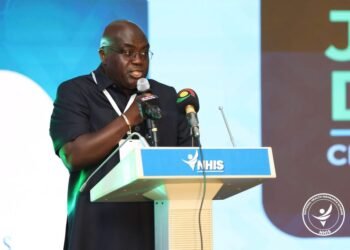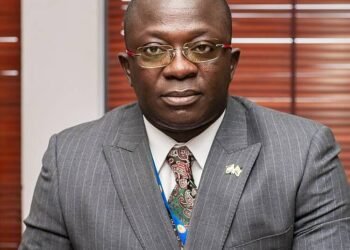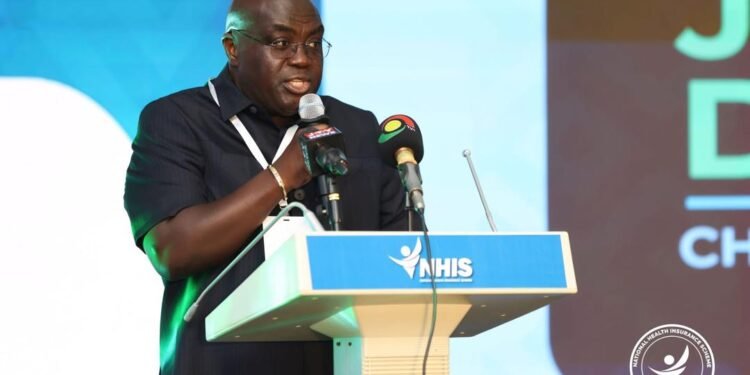The Ministry of Education has announced the nationwide rollout of Parent-Teacher Associations (PTAs) under a new framework intended to strengthen cooperation between schools and families while reshaping their role in Ghana’s education system.
The initiative comes after the submission of final policy guidelines on PTA operations by the National Curriculum Review Committee, with government officials emphasizing that the move is designed to ensure shared responsibility in child development and academic progress.
Education Minister Hon. Haruna Iddrisu underscored the importance of collaboration between parents and teachers, stressing that learning outcomes improve when both sides recognise their equal responsibility in shaping children.
“PTAs are back. Now there is an established norm with guidelines to facilitate and support their work. Socialisation is a shared responsibility, particularly for young learners.
“While the child spends time at home, significant hours are spent in school, making both parents and teachers equally responsible for shaping the child. Ghana’s concept of socialisation must be shared”
Hon. Haruna Iddrissu, Minister of Education
The new guidelines seek to clearly define PTAs beyond their traditional perception as sources of financial contributions. According to the Chairman of the Committee on the Guidelines, Kofi Asare, the government expects PTAs to evolve into active stakeholders embedded into the decision-making at the school level, with their influence felt in both teaching and learning outcomes.

“These guidelines seek to prevent PTAs from being reduced to contributors of funds,” he said, calling for a decisive shift from mere fundraising to structured engagement with the broader educational process, and the academic and welfare needs of learners – a concern raised by education analysts.
Mr. Asare reiterated that the new scope of PTAs in school development has been keenly tailored towards this end, and urged the Ghana Education Service (GES) to ensure full implementation of the guidelines in order to safeguard their intended impact.
He also emphasised that the future success of the guidelines will depend on the willingness of both schools and parents to “move away from old habits.”
According to the Ministry of Education, PTAs will now be recognised as formal partners in decisions around curriculum implementation, student welfare, and school improvement programmes.
By institutionalising their role through a regulated framework, the government expects schools to be more accountable to parents while simultaneously enhancing parental engagement in children’s learning experiences.
Fairness in School Placement
In addition to unveiling the PTA framework, the Ministry of Education addressed concerns surrounding the Computerized School Placement System (CSSPS).

Hon. Haruna Iddrisu reaffirmed that the government remains committed to ensuring transparency in the placement process, assuring parents and students that genuine challenges will be addressed at established resolution centres across the country.
He warned against attempts to manipulate the placement process, stressing that the government would maintain strict oversight of the system.
“We feel the frustrations of parents and students, but there will be no room for manipulation. Every concern that is genuine will be addressed. We must preserve the integrity of the placement system”
Hon. Haruna Iddrissu, Minister of Education
The Minister also reaffirmed the government’s pledge to expand Senior High School infrastructure in order to reduce pressure on existing facilities, noting that access remains a priority under the current administration.
The Ministry’s announcement forms part of broader reforms aimed at promoting accountability within the education sector. Officials believe that by clearly defining the purpose and authority of PTAs, schools will no longer see them as a fallback for resource mobilisation, but rather as co-partners in strategy and oversight.
The rollout of the guidelines is expected to be accompanied by training sessions to help PTA executives understand their responsibilities under the new system. The Ghana Education Service has also been tasked with monitoring compliance and reporting on progress made in integrating parents into school-level governance.

The Ministry of Education maintained that these reforms are not merely administrative adjustments but a structural shift in Ghana’s approach to education governance. With the guidelines in place, the government hopes to secure broader buy-in from parents while strengthening community involvement in schools.
The Education Minister concluded by reminding parents and teachers that success will require mutual commitment.
He stressed that while the government is working to expand access and improve infrastructure, schools and families must share responsibility for instilling discipline, enhancing learning, and raising achievement levels nationwide.
READ ALSO: Ghana’s Port Container Traffic Hits Record-Breaking 1.7m TEUs























